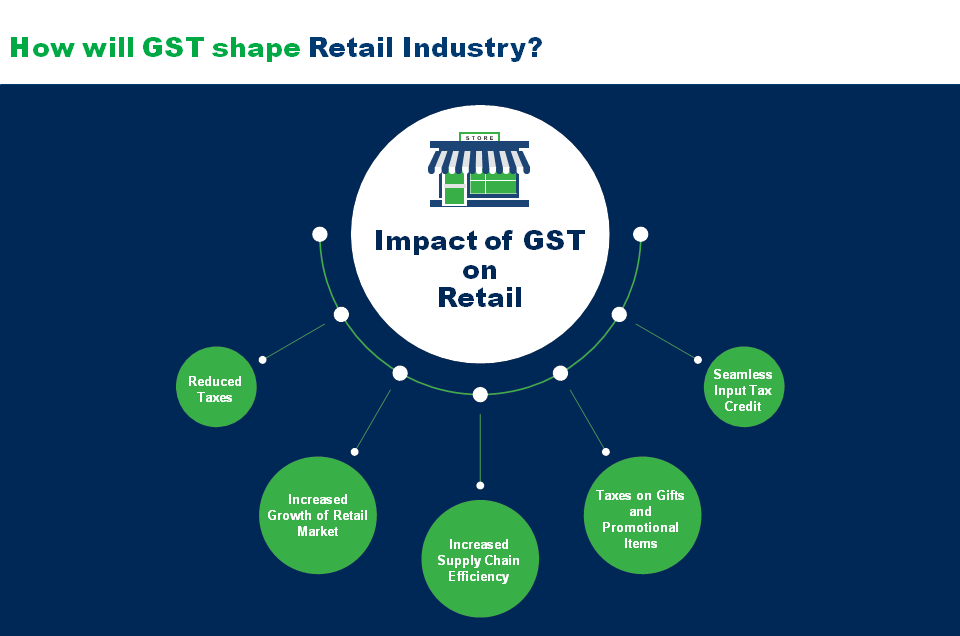How Significant will be the Impact of GST on Retail?
GST is one of the biggest tax reforms since independence. GST will subsume almost all the indirect taxes levied by state and central government and will make a significant impact across industries.
The government has proposed four tax slabs at 5%, 12%, 18% & 28 % for a different type of items and services. The impact of GST on retail sector is going to be positive as it will bring down total indirect taxes, increase supply chain efficiency and facilitate seamless input tax credit. After implementation of GST, state boundaries will be irrelevant from taxation and documentation point of view. Vanishing state boundaries will reduce the complexity for retailers and increase the distribution reach as well as efficiency.

This blog discusses in detail the impact of GST on the retail sector. Below five factors will significantly change the dynamics of the retail sector in India:
a. Reduced taxes – In the current tax structure, most of the retail products are subject to 30 % indirect taxes on average. This includes excise duty, VAT, CST, service tax on warehousing, consulting and rent, Octroi and entry tax. The main impact of GST on retailers will be a significant reduction of the tax burden on the retailers.
b. Seamless Input tax credit – In the current tax structure, input tax credit is available on VAT but not available on service tax and import duty. In the proposed GST regime, there will be set off on taxation starting from producer’s point to the consumer point. GST will make an impact by eliminating the cascading effect of taxes thereby reducing the total tax burden on the retail sector.
c. Increased Supply chain efficiency –Major impact of GST will be on the warehouse networks of retail industries. As CST is abolished, Industries will have no motivation to operate warehouses in each state wherever they operate. This will lead to 20 % – 30 % consolidation of warehouses. Transportation will benefit due to state boundaries becoming insignificant. The long queues and wait time at check posts and state boundaries will be reduced further reducing the lead-time.
The impact of GST will be evident on supply chains, as their designs would be efficiency-oriented and not in alignment with the taxation system.
d. Tax on gifts and promotional items – As per the model GST law, any supply without any consideration will attract tax. It is a common practice in Indian retail sector to offer free products for promotion or one plus one free offers. In the current taxation system; these free products, samples and gifts were tax-free. Once GST is implemented, such gifts will also be considered for tax and the retailers would have to rethink their promotional strategy.
e. Better Opportunities & Growth of Retail Market – Upon implementation of GST, analysts predict unification of markets. Thus, biggest of the impacts of GST will be in the widening of potential markets for the retailers. Retailers would be ready to explore markets across diminished boundaries leading to better growth of the retail market.
The impact of GST on retail sector will be very positive from both taxation and operations point of view. Retail industries will have to re-assess their current supply chain strategy and re-model their network. Supply chain network design will be a critical activity for the retail industries as it offers the opportunity of cost saving in tune of 1 % – 1.15 % of sales. For more information email us at [email protected]
